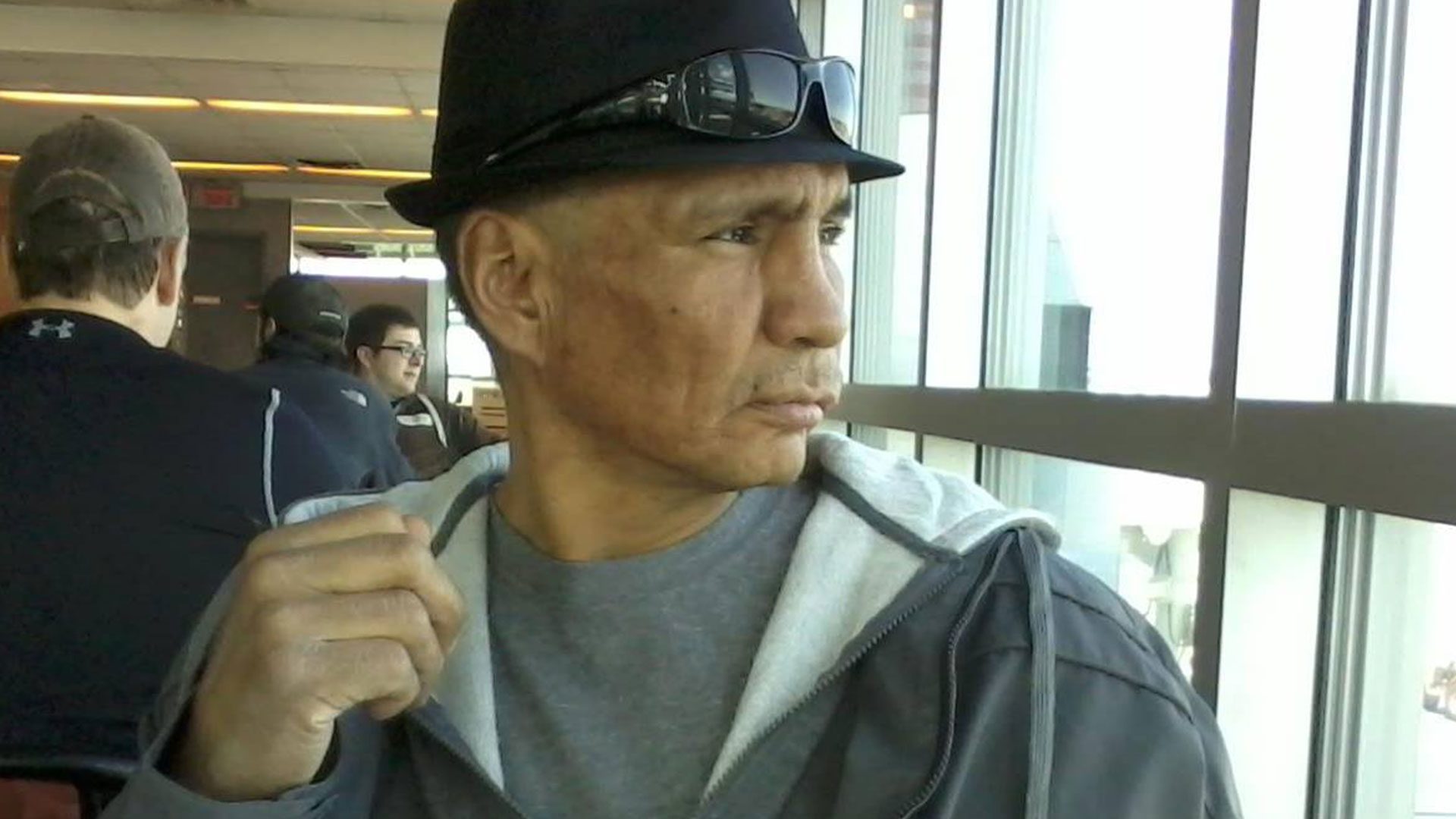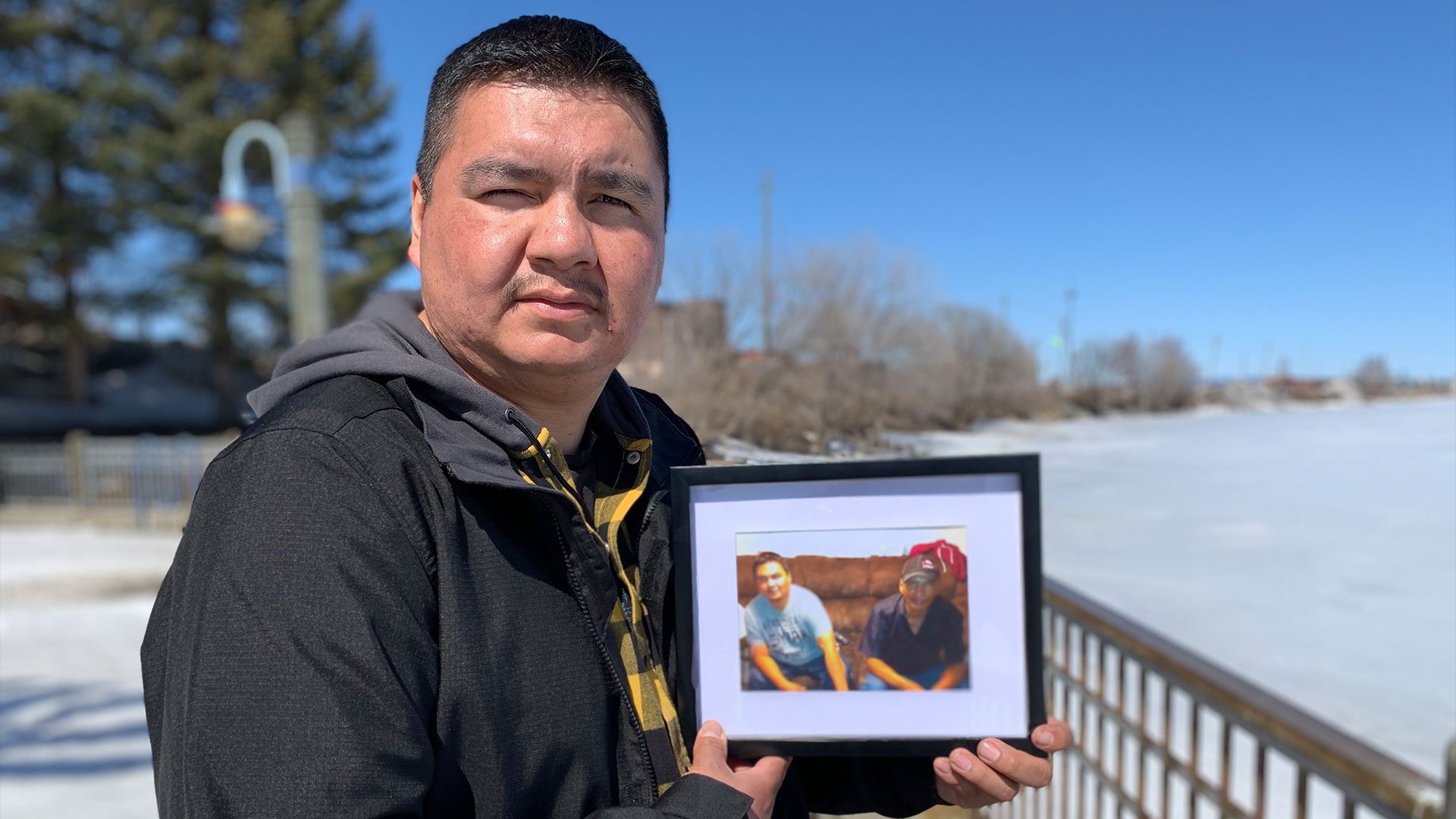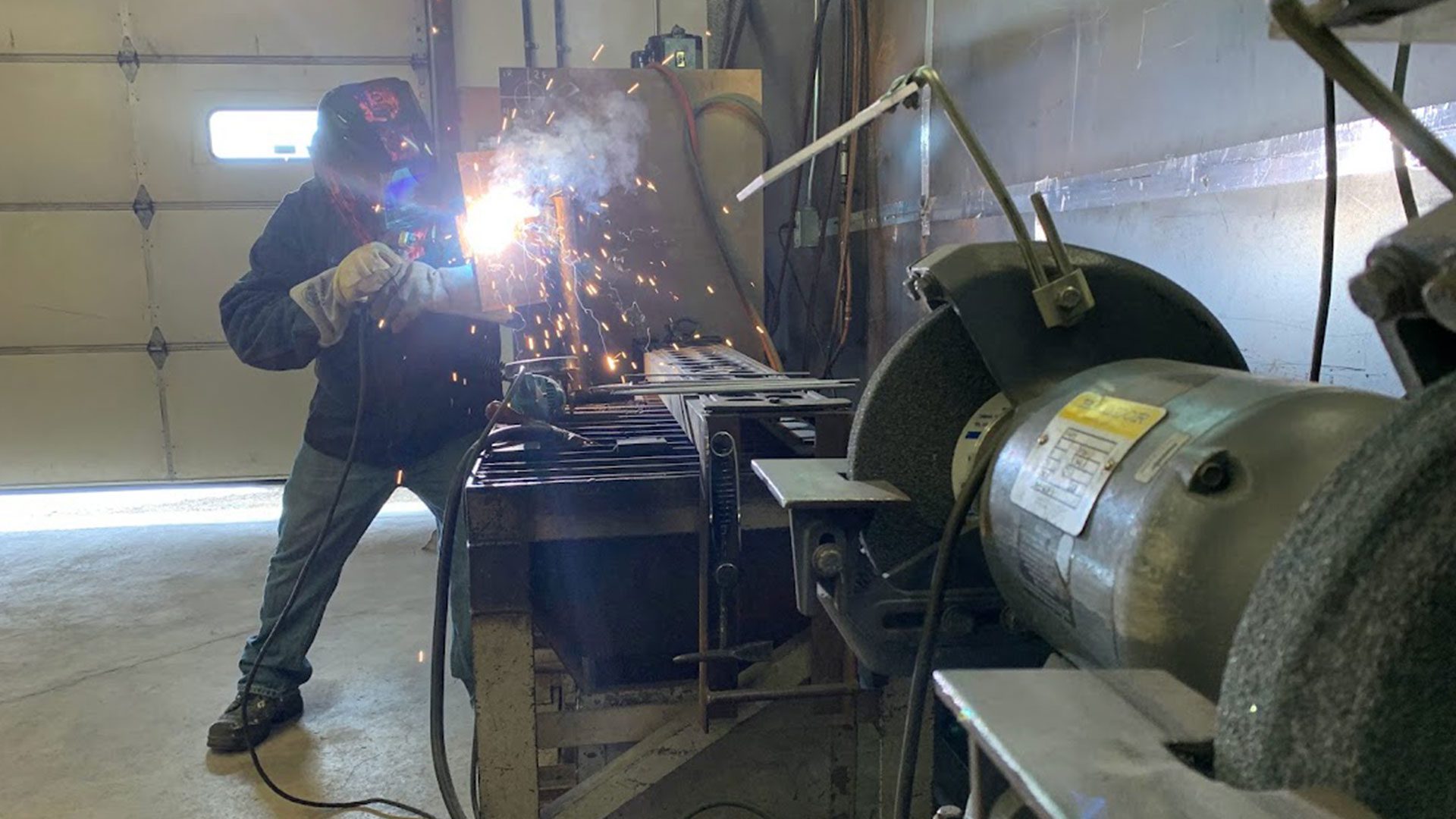Robert Moskotaywenene was a well-known artist in Thunder Bay.
Delicate work that requires a soft touch.
A skill that he passed along to his first-born son.
“To be a good welder you have to have soft hands, you have to have a good eye, you have to be well coordinated and I believe that I got that skill from my father,” said Ronald Moskotaywenene.
“It just takes a lot of skill. I never really painted or really tried, I just couldn’t really get into it, but I believe both skills are similar.”
Robert went missing in August, 2015.
His son was working at a mining camp at the time.
He can’t forget the sense of panic and how he asked his partner in Thunder Bay to help look for his father.
“I knew he started drinking again because he stopped for a few months. So I got her to call the hospital, call the jail, call the Shelter House, drive around and look for him,” he said.
“I just remember stressing out about it, hoping that he’d be OK.”
Soon after his underground supervisor told him he needed to call home.
“And that’s when I heard the news that he had passed away. That it was my father that they found in the river.”
Robert’s body was found in the Kaministiquia River on the afternoon of Sept. 9, 2015.
Police said it appeared he had been in the water for some time. A post-mortem examination found the cause of death consistent with drowning.
It was ruled accidental.
Robert was 50 years old.

“I broke down, my head fell onto the table, I think I yelled no or something like that. And then reality just kind of just settled in. I just felt low. I guess, broken. Shocked. It just can’t be real, maybe it’s a mistake, just things like that, all kinds of emotions,” Robert’s son recalled.
Robert is one of 14 sudden death cases of Indigenous people that are currently being considered for re-investigation, according to a confidential report first reported by APTN News in March.
Due in large part to the Thunder Bay Police Service’s mishandling of the cases.
“Somebody hurt him,” said Robert’s sister, Sandra Moskotaywenene.
“I knew somebody hurt him.”
Sandra’s pain is still visible to this day.
“I miss my brother. Every time I would see him he would tell everyone this is my beautiful sister and give me a hug,” said Sandra.
It was Ronald and other family members who came to her home to tell her Robert’s body was pulled from the river.
Ronald also didn’t believe what police were saying but struggled to speak up at the time.
“I knew he didn’t just fall into the river. I’m not going to lie, I don’t like going to the police station. I just feel intimidated by them, [but] they came and told my partner what happened, told me a little bit of what happened and it was always just the end of the story,” recalled Ronald.
It was just leave me alone now, which I kind of regret, maybe I should have had a little bit more courage to stand up and ask a little more questions, but at the time, I just didn’t want to deal with them.”
Given the number of the ways police botched Robert’s death investigation, and many others, it’s easy to see why families and community members are so mistrustful of Thunder Bay police.
After police found Robert’s body, no tarp was used to preserve any physical evidence and a witness who found his body was never interviewed.
No evidence searches.
No canvas.
No video seized.
No reported consultation with the criminal investigations unit.
And the scene was released the same day.
“I thought all these years they would at least try to interview some people, or I thought they did. I thought they would look at video camera footage, which I thought they did. I thought that they would maybe try to hold the scene for a little while, which I thought they did.
“But, I guess they just ended that investigation right then and there and that was it, and I did not know that,” said Ronald, who reviewed the confidential report obtained by APTN.
It’s a tragic story.
But one that’s become all too common in Thunder Bay.
It’s a city divided.
And the Indigenous population has been under attack for decades.
Suspicious deaths.
Systemic racism.
Discrimination.
It’s business as usual in Thunder Bay.

All of this is part of the reason a coroner’s inquest was called into the sudden deaths of seven Indigenous youths from the region dating back to 2000.
It was one of the largest inquests in the province’s history.
Over a period of eight months, 146 witnesses testified.
Many recounted similar stories of racism, violence and police discrimination within the city.
But for many of the families, answers as to how their loved ones died is still a mystery.
The inquest wrapped up in June, 2016 and the coroner’s jury ruled three of the deaths accidental and the other four undetermined.
A total of 145 recommendations were made.
But kids kept dying.
Less than a year after the inquest, Josiah Begg, 14, and Tammy Keeash, 17, both go missing on the same night in May, 2017.
Keeash is found in the Neebing-McIntyre floodway.
Her death was quickly ruled a drowning with no foul play.
Police then suspended the ground search for Begg within days and discouraged people from searching waterways for his body.
He was pulled from the McIntyre River nearly two weeks after disappearing.
He was in town for counselling.
Keeash was living in a treatment foster home and was supposed to be under 24-hour watch.
Following their deaths, the Office of the Independent Police Review Director issued the Broken Trust report.
The provincial police watchdog confirmed what many had been saying for decades – systemic racism and discrimination within Thunder Bay police.
The office reviewed 37 sudden death investigations, nine of which were so problematic that they needed to be re-conducted by a task force.
Those investigations are still ongoing.
In the years since his father’s death, there has been much speculation as to what really happened to Robert Moskotaywenene.
In 2019, a family member came forward with information that identified an Indigenous man as a suspect who may have pushed Robert into the river killing him.
The suspect had an extensive history of violence, including a murder charge in relation to an attack on an Indigenous man in Thunder Bay.
The direct source of that information refused to speak to police and the suspect in question was murdered in 2020.

Whether or not the case can ever be solved isn’t paramount to Robert’s oldest son.
“I don’t feel as much anger as I used to. I don’t feel as depressed as I used to be. I just don’t feel as much pain as I used to,” said Ronald Moskotaywenene.
“Right now, all I know is that my dad wants me to move forward and keep going in the direction I’m going towards. Just do my best. Take care of my family and try to enjoy life,” he said.
“It’s not easy, but you know, you can heal from things. Things may never be the same, it will never be easy, but things can get better if you let it, let it out and talk about it.”
Robert’s spirit lives on in his art, which still adorns the walls of the Shelter House, a hub for vulnerable people in Thunder Bay.
In the cafeteria are his paintings of the Seven Grandfather Teachings.
“I feel proud of him. It makes me feel good that his memory, his spirit is still around. It feels like he is still here. That’s what I feel,” said Ronald, who took APTN to see the paintings.
The family never spoke about Robert’s death until now.
And they did it for one reason.
To honour a man whose life was cut too short.
“He was kind, he was humble, he was respectful, he was sarcastic. Everything he did, he gave his all. There’s a lot of things I could say about him. I just know that there is a lot of respect for him out there. A lot of people love him, cared for him,” said Ronald.
“If he knew what I was doing now, he would be proud. And that’s how I choose to look at things.”












